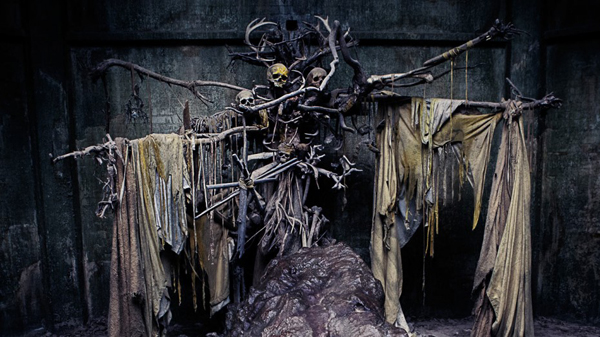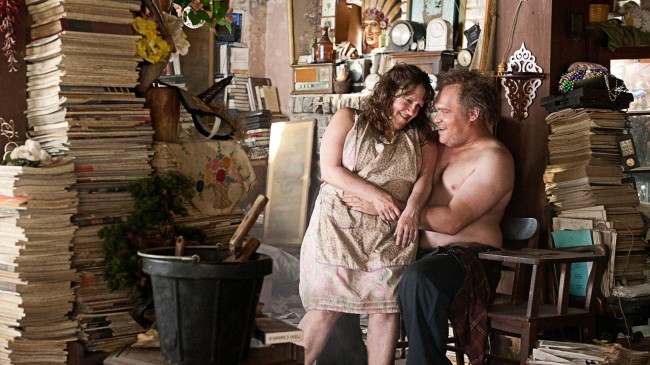The monster at the end
of True Detective
“We didn’t get ’em all.” – Det. Rustin Cohle
“Yeah and we ain’t gonna get ’em all. That ain’t what kinda world it is. But we got ours.” – Det. Martin Hart
Cohle and Hart got their man, but I’m not entirely sure we got ours. Carcosa, The Yellow King, The Black Stars; all were deemed essentially unimportant by the creators of True Detective in the final episode of the Cohle and Rust story, “Form and Void.” The strength of True Detective is that it invites us to look further and form our own opinions about the themes and the characters. Its weakness is its complete disinterest in gratifying our enthusiasm.
The development of Martin Hart and Rustin Cohle is central to the success of True Detective, but it isn’t the sole element of significance. Absolute meaning regarding narrative wasn’t necessary, but some form of weight behind the eery cult-like institute that the show has been chasing for eight episodes was. Pizzolatto has pointed us in the direction of The Yellow King outside his diegetic Louisiana, to the weird fiction genre and to the work of Robert Chambers, but it’s now clear he never intended on offering clarity on how it fits into his own world. It was all just cool sounding shit.
The real twist of True Detective was the all but unforeseeable happy ending and the denunciation of the show’s previously omnipresent pessimism. ‘Happy’ perhaps in a warped sense of the world, since instead of losing their lives Cohle and Hart are gifted new lives, whether they want it or not. Marty is blessed with a variety of redemption. He’s certainly been paying for his sins since his separation from Maggie in the form of loneliness. During his family’s visit to the hospital, Hart finally earned back some respect, and perhaps some love. “She still cares about you.” Cohle tells Hart on their way to Errol Childress’ woodland manor.
Back in Episode 3, Hart commented that Cohle thought a lot about the universe for a man who claimed to have little care for it. In “Form and Void”, both Cohle and True Detective revealed that deep down they couldn’t truly commit the grimness they’d enjoyed spinning so much. The future may not be bright for Cohle, but neither will it be without some form of bittersweet hope.
The zenith of the episode was the showdown at Childress’ abode. There was a eery sense of Conrad and the finality of Kurtz’s compound as Hart and Cohle arrived. ‘This is the place,’ Cohle declares. Childress makes for a chilling villain, and would have been more so had slightly more light been shed on exactly what Carcosa and The Yellow King meant to him. The argument that it doesn’t matter, since this is not what True Detective is about is erroneous. These Lovecraftian/Chamberian elements are a huge part of True Detective, including Cohle and Hart’s journey into the heart of darkness. The jettisoning of the significance of these elements in “Form and Void” ultimately means that much of the show loses meaning, including much of the Hart and Cohle’s narrative.
True Detective has forced Cohle and Hart to live on. Little was made of their achievement, even by their own selves. Their reward for doggedly sticking with the Dora Lang case? Terrible self-awareness and memories of ‘Carcosa’, but also, finally a friendship of sorts. True Detective may benefit from the power of hindsight as well as the ability to binge-watch the entire season and view it as one whole. The quality of so much that Pizzolatto and Fukunaga have offered during the past two months has unfortunately shined a brighter light on the weaknesses of the series. But the show has given us something to obsess over and to think about long after Hart convinces Cohle to find hope in the stars, which must be worth something. Killer theme song too.
“Once there was only dark. If you ask me, the light is winning.” – Det. Rustin Cohle
For more on Television, click here. If you’re digging ReelGood, sign up to our mailing list for exclusive content, early reviews and chances to win big!

